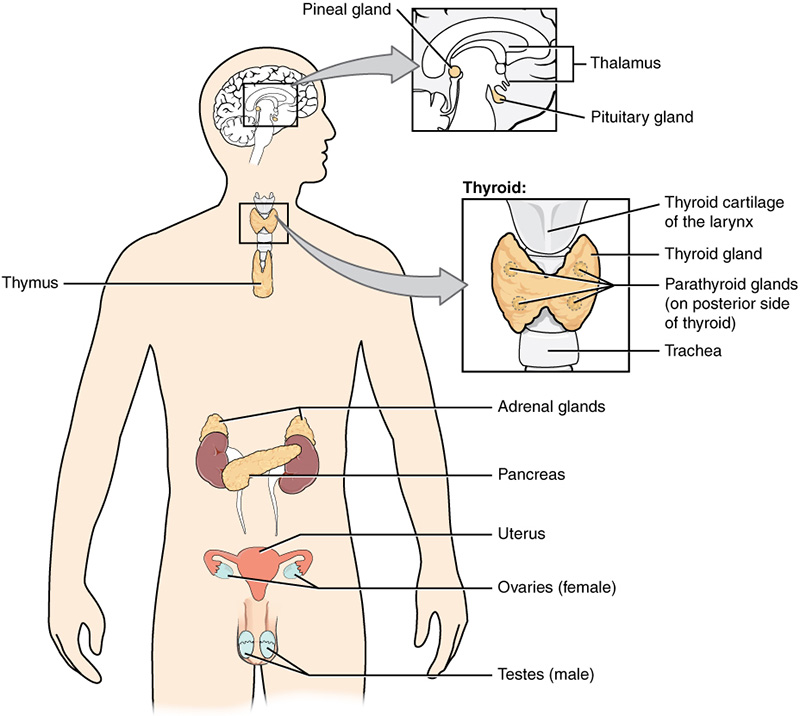Endocrine Disruption
|
Endocrine System
- Hormone Glands
- Target Cells
- Types of Hormones
- Feedback Loops

CAPTION: Male and Female Endocrine System.
IMAGE CREDIT: OpenStax
The endocrine system is a complex network of chemical signals
and messages that control many immediate and life-long bodily responses and functions. Growing taller, developing male or
female characteristics and reacting to fear are all partially directed by endocrine hormones. All animals with backbones —
from fish to mammals — have an endocrine system that works hand-in-hand with the nervous system to: maintain the body's internal steady state (nutrition, metabolism, excretion, water and salt balance); react to stimuli from outside the body; regulate growth, development and reproduction; produce, use and store energy.
The endocrine system's three parts — glands, hormones
and target cells — relay information and instructions
throughout the body. Sometimes the whole process works within
seconds, say, in response to fear. Other times it reacts more
slowly, telling body parts when and how much to grow and developing
characteristics that distinguish male from female. It happens
like this:
- Glands and nerve cells signal endocrine glands about temperature changes, hunger, fear, growth needs or other
stimuli.
- In response, endocrine glands release hormones to carry
instructions to specific cells. These chemical messengers
travel from head to toe or just to the cell next door looking
for and locking onto special binding proteins, known as
receptors, that are located in and on the target cells.
- Once bound, the receptor reads the hormone's message
and carries out its instructions by starting one of two distinct cellular processes. The receptor can:
Turn on genes to make new proteins, which causes
long-term effects such as:
- growth — growth hormones control height
and bone structure, too little causes dwarfism,
too much causes giantism (acromegaly).
- sexual and reproductive maturity — sex
steroid hormones (estrogens, progestins, androgens)
help develop, regulate and maintain male and female
sex characteristics (breast size, bone density,
muscle development, sperm production), cycles (uterine
growth, pregnancy) and behavior.
Alter the activity of existing cellular proteins, which produce rapid responses such as:
- a faster heart beat — releasing stored
adrenalin in response to being frightened or nervous
causes the heart to race.
- varied blood sugar levels — the hormone insulin regulates blood sugar by modifying glucose
uptake by many tissues (low insulin levels leads to diabetes).
|
